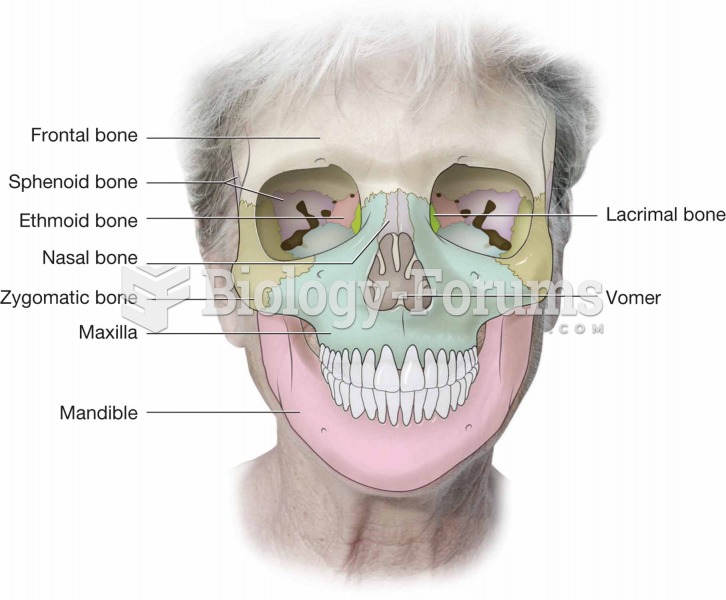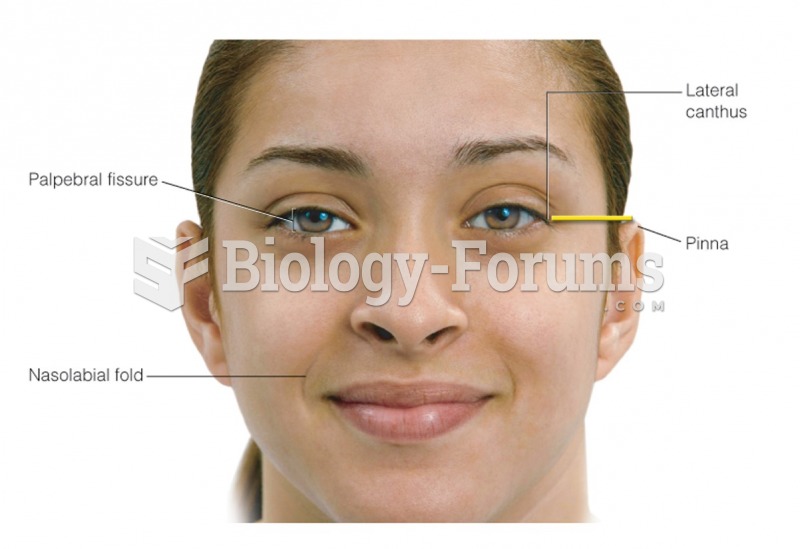|
|
|
Did you know?
Ether was used widely for surgeries but became less popular because of its flammability and its tendency to cause vomiting. In England, it was quickly replaced by chloroform, but this agent caused many deaths and lost popularity.
Did you know?
In 1844, Charles Goodyear obtained the first patent for a rubber condom.
Did you know?
There are more bacteria in your mouth than there are people in the world.
Did you know?
Fewer than 10% of babies are born on their exact due dates, 50% are born within 1 week of the due date, and 90% are born within 2 weeks of the date.
Did you know?
Approximately 500,000 babies are born each year in the United States to teenage mothers.







